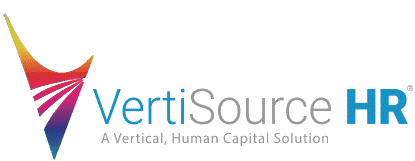As your trusted partners, we provide an overview of recent legislative changes effective in 2025.
US DOL Overtime Rule Halt:
Courts have ruled that the U.S. Department of Labor (DOL) exceeded its authority by raising the threshold too high, first from $35,000 to $44,000 and then to $59,000, and permitting automatic adjustments every three years.
A federal judge has temporarily blocked a rule intended to significantly raise the salary threshold for “white collar” overtime exemptions, just two months before the rule was set to take effect.
In June, a federal district court temporarily halted the rule only as it applied to Texas as an employer while the court reviewed the underlying legal challenge. Multiple business organizations then collaborated with Texas to request the court to entirely overturn the rule for all employers.
During a recent hearing on November 8, the judge heard arguments from business groups and the state of Texas about why the rule should be blocked for all employers. Today, the judge in the Eastern District of Texas invalidated the rule in its entirety, blocking the rule nationwide.
The ruling cancels the Biden DOL’s overtime rule and restores the salary thresholds to $35,568 and $107,432, respectively.
Although the DOL still has the opportunity to appeal the district court’s ruling, employers should be aware that some states have salary thresholds that are higher than the FLSA threshold. These states include Alaska, California, Colorado, Maine, New York, and Washington.
Washington Law Updates:
Effective January 1, 2025, Washington will expand Paid Sick Leave to include new covered family members.
- Child’s spouse and any individual who regularly resides in the employee’s home or where the relationship creates an expectation that the employee care for the person, and that individual depends on the employee for care.
Effective June 14, 2024, Washington State has expanded its Paid Family and Medical Leave program.
- Expanded family leave to include time to bond with an adopted child after the adoption is legally finalized, if the employee has not already exhausted PFML bonding leave during first 12 months following placement of the child.
Utah Law Updates:
Effective March 18, 2024, Utah State has expanded its Paid Family and Medical Leave program.
- Provisions for military leave for reserve members on active duty, training, or state active duty have been reenacted.
- Utah National Guard and State Defense Force members who are ordered to serve have the same rights and protections as Federal military service members under federal law.
Effective May 1, 2024, Utah State expanded Religiously Objectionable Expressions
- Employers are prohibited from compelling employees to engage in expression, action, or inaction that burdens or offends a sincerely held religious belief (e.g., dress, grooming, speech, scheduling, prayer, and abstentions related to healthcare).
California Law Updates:
California Eliminates Employers’ Ability to Require Vacation Use Before Receipt of State Paid Family Leave Benefits
On Sept. 29, California Gov. Gavin Newsom signed into law Assembly Bill 2123. Beginning on Jan. 1, 2025, AB 2123 will eliminate employers’ ability to require employees to use up to two weeks of company-provided vacation before they start receiving paid family leave (PFL) insurance benefits paid by the state (or by their employer, if the company has an approved voluntary plan that applies in lieu of the state program).
For the state, this could mean not having to pay the full benefit (up to eight weeks of benefits within a 52-week period) to individuals who take time off from work for specific reasons:
- To care for a seriously ill family member (child, grandchild, grandparent, parent, sibling, spouse, or domestic partner).
- To bond with a minor child within one year of the child’s birth (or placement, in cases of foster care or adoption).
- To participate in a qualifying exigency related to the covered active duty (or call to covered active duty) of the individual’s spouse, domestic partner, child, or parent in the U.S. Armed Forces.
Not every request for leave will require eight weeks away from work. If an individual needs to use up to two weeks of company-provided vacation, this eliminates the state’s obligation to pay for benefits during that time.
Paid Family Leave Updates
- For claims filed after January 1, 2024, the maximum weekly CA PFL benefit is $1,620.
- Effective January 1, 2024, the SDI/PFL withholding rate increases from 0.9 percent to 1.1 percent.
- Effective January 1, 2024, there is no wage cap on PFL and SDI withholdings. As of January 1, 2024, all wages paid are subject to the SDI and PFL payroll tax. (In 2023, the wage cap was $153,164.)
- As of January 1, 2025, employers may no longer require employees to take up to two weeks of accrued, unused vacation before the employee’s initial receipt of PFL wage replacement benefits.
- The benefit cap remains the same, but lower earning workers will receive more from PFL – 70-90%.
SB 1137 Protected Characteristics: Intersectionality
- SB 1137 adds “intersectionality” to the list of characteristics protected from discrimination under the Unruh Civil Rights Act and FEHA. Intersectionality is defined as the combination of two or more protected characteristics.
California is the first jurisdiction to explicitly adopt this concept and clarify how courts should assess overlapping claims involving protected characteristics.
AB 1815 Discrimination: Race: hairstyles.
- AB 1815 expands the definition of “race” under FEHA by removing the term “historically” and including additional traits associated with race beyond hair texture and protective hairstyles.
- The law also adds definitions for “race” and “protective hairstyle” to the Unruh Civil Rights Act.
AB 2499 “Victims” Time Off
- AB 2499 expands, and recasts jury, court, and victim leave provisions as unlawful practices under FEHA, which were previously covered in the Labor Code.
- Prohibits discrimination, retaliation, or terminating employees who:
- Take time off for jury service, provided they give reasonable notice.
- Take time off to appear in court as a witness under a court order.
- Are victims who take time off to seek relief for their own or their child’s health, safety, or welfare, with reasonable notice, unless providing such notice is not feasible.
- For employers with 25 or more employees
- A victim/has a family member who takes time off to assist the family member for various reasons related to a qualifying act of violence (instead of crime/crime or abuse), with reasonable notice unless not feasible.
- Expands eligibility for reasonable accommodations to include employees who are victims/have family members who are victims of a qualifying act of violence.
- Allows employees to use vacation, personal, PSL and the leave runs concurrently with CFRA/FMLA.
- Employers must inform employees of their rights in writing.
SB 1105 Paid Sick Leave Clarification
- SB 1105 expands California’s existing paid sick leave law for agricultural employees.
- Allows the use of paid sick leave to avoid smoke, heat, or flooding conditions created by a state or local emergency.
- Clarifies this is included in the definition of “preventative care.”
- Provides list of examples of “preventative care” as flu shots and annual exams.
Colorado Updates:
Effective July 1, 2025, there will be an amendment to the Colorado Privacy Act.
- The amendment act may require employees and applicants to consent to the collection of biometric identifiers for limited uses:
- To allow access to secure physical locations and hardware or software applications.
- Documenting the start and end times of the workday, as well as meal and rest breaks longer than 30 minutes.
- The safety and security of employees and the workplace, as well as the safety and security of the public during emergencies or crisis situations.
- May not retain biometric data for tracking employees’ location or amount of time spent using hardware or software.
- Must obtain voluntary consent to collect biometric identifiers for other purposes.
- Must have written policy that establishes a retention schedule, protocol for responding to data security incidents, and guidelines that require the deletion of biometric identifiers by certain dates.
Effective June 3, 2024, Colorado established new protections for living organ donors.
- Protects donors from discrimination, retaliation, and adverse action.
- Rebuttable presumption of violation if employer takes action against employee 30 days before to 90 days after the operation.
Poster Update and Training Reminders:
Update Your All-In-One Posters
Is your labor law poster out of date? If it is, we can help. When you order posters from us, you will receive a fully laminated, all-in-one federal and state labor poster. To ensure compliance throughout the year, you will receive updates whenever the state or federal government makes any changes.
Sexual Harassment Prevention Training
California law mandates that companies with five or more employees offer two hours of supervisory training and one hour of non-supervisory training on harassment, discrimination, bullying, and retaliation every two years. Certain industries also have specific timing requirements.
As always, the VertiSource HR team is here to assist you in navigating these changes and ensuring that your business remains in good standing. If you have any questions or require further clarification on how these laws impact your operations, please don’t hesitate to contact us at hr@vertisourcehr.com for additional information on any of these topics.
Thank you for your attention to this matter. We look forward to continuing to support your business endeavors.


